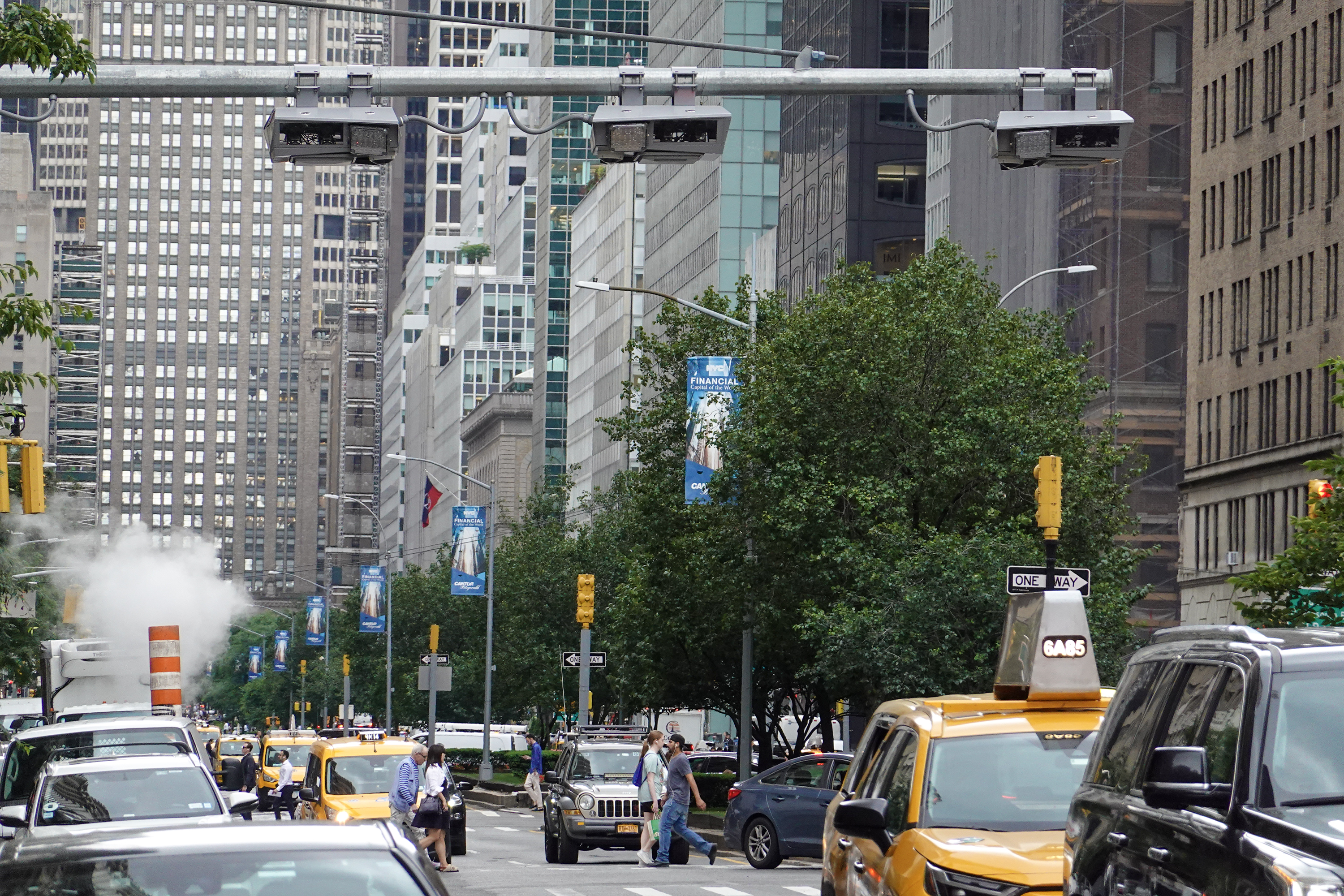Ten people were shot and more than a dozen others injured Tuesday at a subway station in Brooklyn during a morning rush hour attack that left wounded commuters bleeding on a train platform and police searching for the shooter.
Five of the gunshot victims were said to be critically injured in the attack, which happened before and as the train pulled into the 36th Street station in Sunset Park during the morning rush hour commute. Others were hurt in the attack, though the extent of their injuries wasn't immediately clear. Officials said their injuries likely stemmed from the crowd response to the chaos.
The attack was just the latest targeting the NYC subway and its riders — find out more about past attempts to target the city’s mass transit system below.
AUGUST 2019
In 2019, a West Virginia man allegedly traveled to the city to plant two pressure-cooker type devices in lower Manhattan's Fulton Street subway station, triggering an evacuation in one of the city's busiest stations and affecting thousands of commuters.
New York City police opened another investigation after a third device was found in the nearby Chelsea neighborhood.
Get Tri-state area news delivered to your inbox. Sign up for NBC New York's News Headlines newsletter.
Larry Kenton Griffin was arrested and charged with placing a false bomb.
Local
DECEMBER 2017
On Dec. 11, 2017, at approximately 7:20 a.m., Akayed Ullah, 31, of Brooklyn, New York, and a lawful permanent resident of Bangladesh, detonated a pipe bomb strapped to his chest in a subway station near the busy Port Authority Bus Terminal in midtown Manhattan. One commuter who was inside the station when the pipe bomb was detonated suffered a shrapnel wound to his leg, and two other victims partly lost their hearing as a result of the blast.
Pictures: Multiple People Hurt in Brooklyn Subway Shooting
Shortly after the blast, first responders located Ullah lying on the ground in the station where he had detonated the improvised explosive device, and he was taken into custody. Ullah — who admitted that he conducted the attack on behalf of the ISIS terror group — was ultimately convicted and sentenced to life in prison.
DECEMBER 1994
Edward J. Leary, a 50-year-old computer analyst from Scotch Plains, New Jersey, lost his job at Merrill Lynch and took his rage into New York City's subway in December 1994, firebombing two trains with homemade explosives, including one that turned a train in lower Manhattan into a furnace and left dozens of people injured.
Leary was convicted and sentenced to 94 years.
DECEMBER 1993
While not in the NYC subway, another attack targeted NYC commuters on a train heading to Long Island.
In 1993, a man opened fire on the Long Island Rail Road, killing six people and injuring 19 others.
Passengers charged at shooter Colin Ferguson and held him down as the train pulled into a station.
Ferguson refused an insanity plea and represented himself at his 1995 trial. Under cross-examination, witnesses answered Ferguson's questions by implicating him, telling Ferguson, “I saw you shoot me.”
Ferguson was convicted on six murder charges and 19 attempted murder charges. He was acquitted of 25 counts of civil rights violations on charges that accused Ferguson, who was Black, of targeting the victims based on their race. The people killed and injured were of multiple races.
DECEMBER 1984
Thirty-eight years ago, a man shot four Black teens on the 2 train in Manhattan at a time of widespread crime in the city, sparking a nationwide debate on racism, gun control, and safety.
Bernhard Goetz said he shot the teens because they were attempting to rob him. The teens had sharpened screwdrivers and asked Goetz for $5. Goetz was charged with attempting to murder the four teens with an unlicensed firearm.
In 1987, Goetz was cleared of the attempted murder charge and spent less than a year in jail for a weapons conviction.
Darrell Cabey, one of the young men shot on the subway, was left paralyzed and suffered brain damage after the shooting. Several years later, he was awarded $43 million in a lawsuit against Goetz. The other three victims recovered from their wounds.



